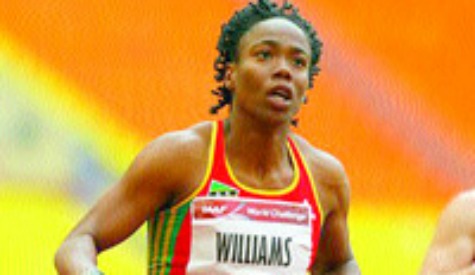 St. Kitts & Nevis sprinter Tameka Williams has been sent home from the London Olympics by her team for a potential drug violation.
St. Kitts & Nevis sprinter Tameka Williams has been sent home from the London Olympics by her team for a potential drug violation.
Williams had been using a substance which was "clearly oyesteron Sunday.
Knight said Williams had not tested positive, but the team acted after consulting with the World Anti-Doping Agency "to find out about the product."
"In discussions with our team management, she volunteered to them that she had been using a particular substance which, when we did our own investigations, we considered to be outside the accepted medical code," Knight said.
Williams told team officials about using the substance — which the team has not disclosed — in a pre-Olympics training camp.
"It was a matter of the management of the team doing their due diligence," Knight said.
The 22-year-old Williams had qualified for the 100 and 200 metres, and gave samples for anti-doping tests at national Olympic trials last month.
"It was not based on any positive drug test. She turned up a clean test," Knight said.
Williams marched at the Olympic opening ceremony on Friday as the only woman in a seven-member team from the Caribbean islands, who are all track sprinters. The best known is five-time Olympian Kim Collins.
Knight said St Kitts team officials sought expert advice in London before acting.
"We wanted to consult with the anti-doping fraternity," he said. "We are a very tiny country with limited knowledge of these things."
www.trinidadexpress.com

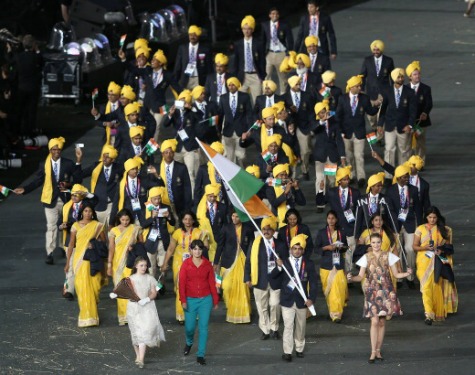 India have complained to London 2012 over an apparent security lapse during the Opening Ceremony of the Olympics last night when an unidentified woman walked alongside flag-bearer Sushil Kumar during the athletes' parade.
India have complained to London 2012 over an apparent security lapse during the Opening Ceremony of the Olympics last night when an unidentified woman walked alongside flag-bearer Sushil Kumar during the athletes' parade.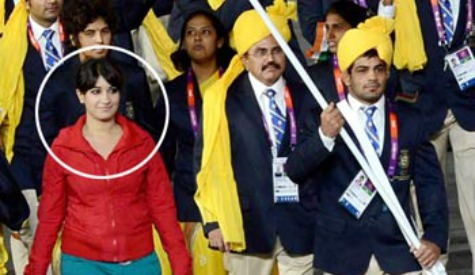 "We were initially told that she would accompany the contingent till the track but she went on to take the entire lap.
"We were initially told that she would accompany the contingent till the track but she went on to take the entire lap.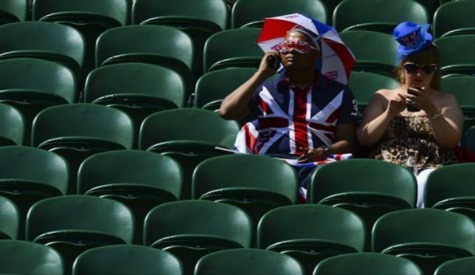 London's Olympic organisers launched an investigation into empty seats on the first day of the Games yesterday.
London's Olympic organisers launched an investigation into empty seats on the first day of the Games yesterday.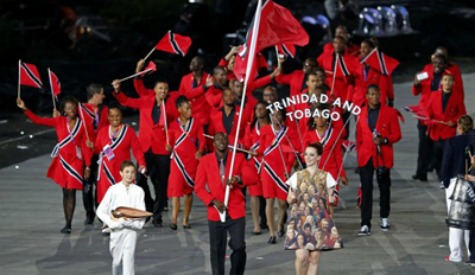 Is it the tension which precedes the entry to our Olympic challenge, or are you mesmerised by the spectacular dressings of that great city called London where the Bridge, The Palace, the river Thames, and the bustling old-fashioned taxis which mix with buses, trains, subway and overhead, all fitting snugly into space that often appear insufficient on a normal day. And while the athletes from almost every country (204) in the world have presented an enthusiastic, scintillating and colourful entry into the Olympic stadium, the fans of every sporting discipline will be present to ensure that Olympic history in brought to life four years after Beijing 2008. In open bars, around the parks of central London, Hyde Park, St James Park, the so called soap box Parliament at Hyde Park Corner, human voices using various languages, each representing a nation with obvious dialect, come together to create an atmosphere reminiscent of a carnival without bacchanal, surrounded by an unassuming, but alert police presence. With the brilliant start which saw a brazilian dominace on the football field, where flair and creativity mesmerised the Cameroun Women and the following day, the pain of the Egyptian politics was not spared by the men’s version of football’s ingenuity when the enthusiastic Egyptians chased around a plush field for forty-five minutes in search of a ball that seemed harder for them to find than a needle in a haystack.
Is it the tension which precedes the entry to our Olympic challenge, or are you mesmerised by the spectacular dressings of that great city called London where the Bridge, The Palace, the river Thames, and the bustling old-fashioned taxis which mix with buses, trains, subway and overhead, all fitting snugly into space that often appear insufficient on a normal day. And while the athletes from almost every country (204) in the world have presented an enthusiastic, scintillating and colourful entry into the Olympic stadium, the fans of every sporting discipline will be present to ensure that Olympic history in brought to life four years after Beijing 2008. In open bars, around the parks of central London, Hyde Park, St James Park, the so called soap box Parliament at Hyde Park Corner, human voices using various languages, each representing a nation with obvious dialect, come together to create an atmosphere reminiscent of a carnival without bacchanal, surrounded by an unassuming, but alert police presence. With the brilliant start which saw a brazilian dominace on the football field, where flair and creativity mesmerised the Cameroun Women and the following day, the pain of the Egyptian politics was not spared by the men’s version of football’s ingenuity when the enthusiastic Egyptians chased around a plush field for forty-five minutes in search of a ball that seemed harder for them to find than a needle in a haystack.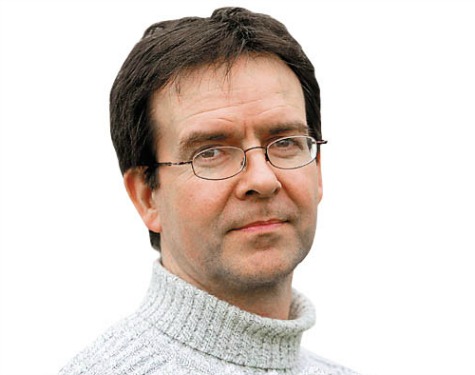 This was a stripped down Opening Ceremony, revealing the truth of so many elements of Britain's history that we take as read in a vivid and beautifully modulated show which presaged a coup de theatre which confounded all the – heated - discussion about Who Would Light The Olympic Cauldron.
This was a stripped down Opening Ceremony, revealing the truth of so many elements of Britain's history that we take as read in a vivid and beautifully modulated show which presaged a coup de theatre which confounded all the – heated - discussion about Who Would Light The Olympic Cauldron.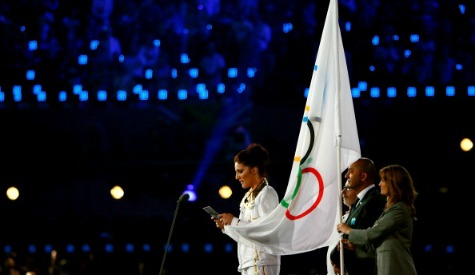 Gone were the huge battalions of Beijing. The stadium was not always filled with noise – images and captions of the screens did much of the necessary work.
Gone were the huge battalions of Beijing. The stadium was not always filled with noise – images and captions of the screens did much of the necessary work.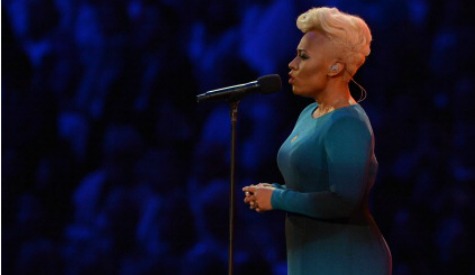 The names, the excited faces, have a cumulative and moving power.
The names, the excited faces, have a cumulative and moving power.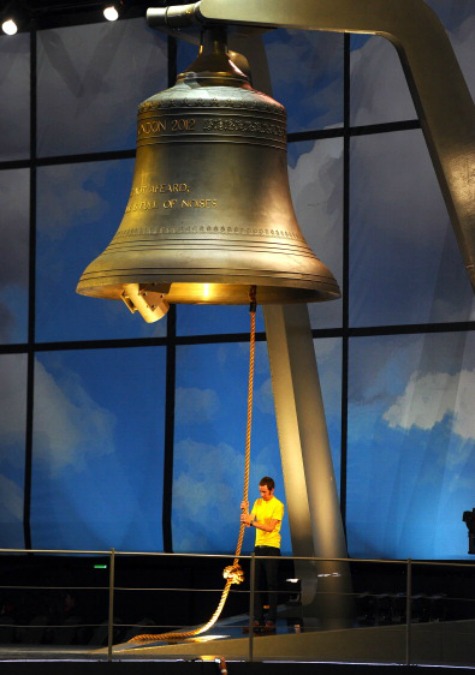 The countdown arrived and was negotiated in orderly fashion, upon which Bradley Wiggins, Britain's first Tour de France winner, arrived in his yellow jersey and approached the biggest bicycle bell he had ever rung and rung it, firmly, once, without referring to raffle tickets or anything else.
The countdown arrived and was negotiated in orderly fashion, upon which Bradley Wiggins, Britain's first Tour de France winner, arrived in his yellow jersey and approached the biggest bicycle bell he had ever rung and rung it, firmly, once, without referring to raffle tickets or anything else.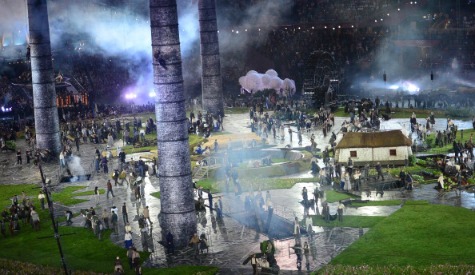 Soon, there was a mighty murmur of surprise as the audience realised that the film showing on the big screen in which Daniel Craig, as James Bond, was ushered into a room in "Buckingham Palace" where a silver-haired "Queen" was seated with her back to him, ignoring him until he cleared his throat, was really showing a room in Buckingham Palace.
Soon, there was a mighty murmur of surprise as the audience realised that the film showing on the big screen in which Daniel Craig, as James Bond, was ushered into a room in "Buckingham Palace" where a silver-haired "Queen" was seated with her back to him, ignoring him until he cleared his throat, was really showing a room in Buckingham Palace.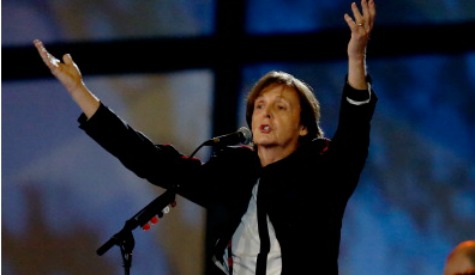 Next, we were invited to join Tim Berners-Lee, inventor of the World Wide Web, as his words "This is for everyone" appeared writ large on the audience.
Next, we were invited to join Tim Berners-Lee, inventor of the World Wide Web, as his words "This is for everyone" appeared writ large on the audience. Olympic 100-metre champion Usain Bolt will lose his crown to compatriot Yohan Blake unless he quickly fixes technical problems with his race, former world record holder Maurice Greene told Reuters yesterday.
Olympic 100-metre champion Usain Bolt will lose his crown to compatriot Yohan Blake unless he quickly fixes technical problems with his race, former world record holder Maurice Greene told Reuters yesterday.